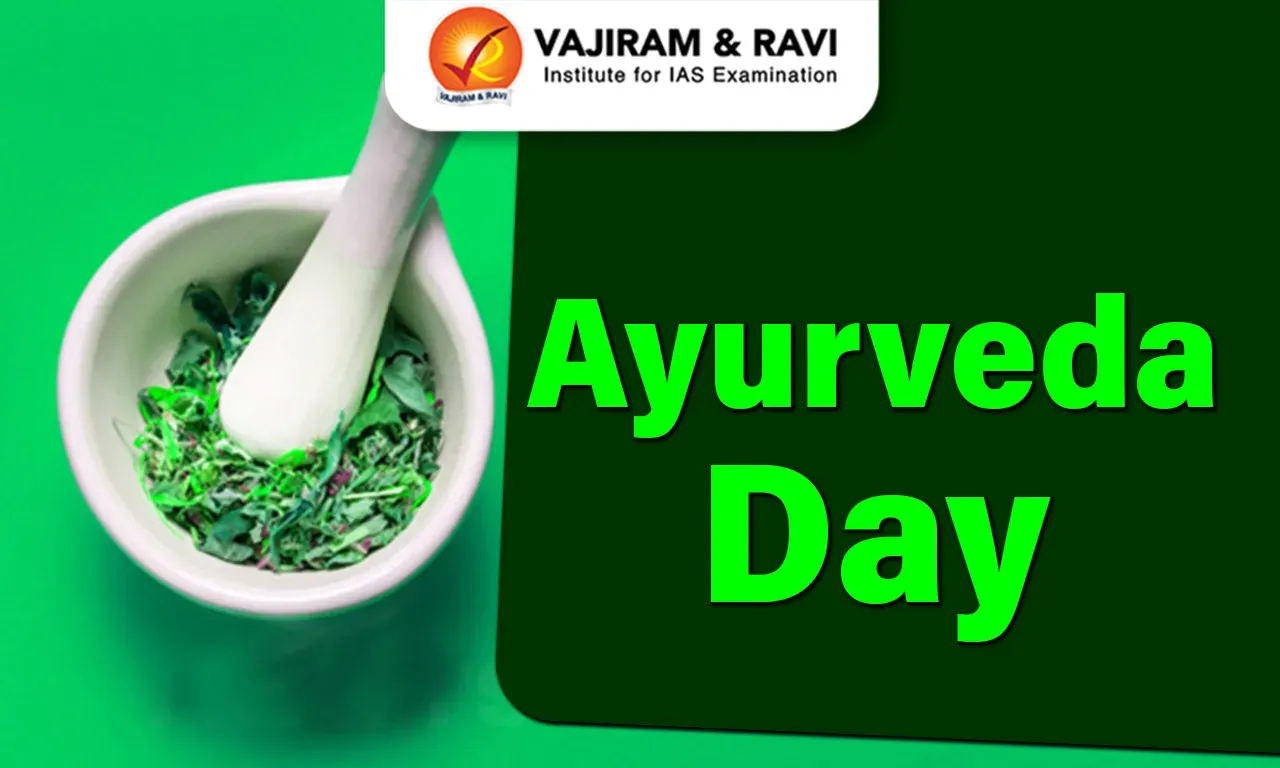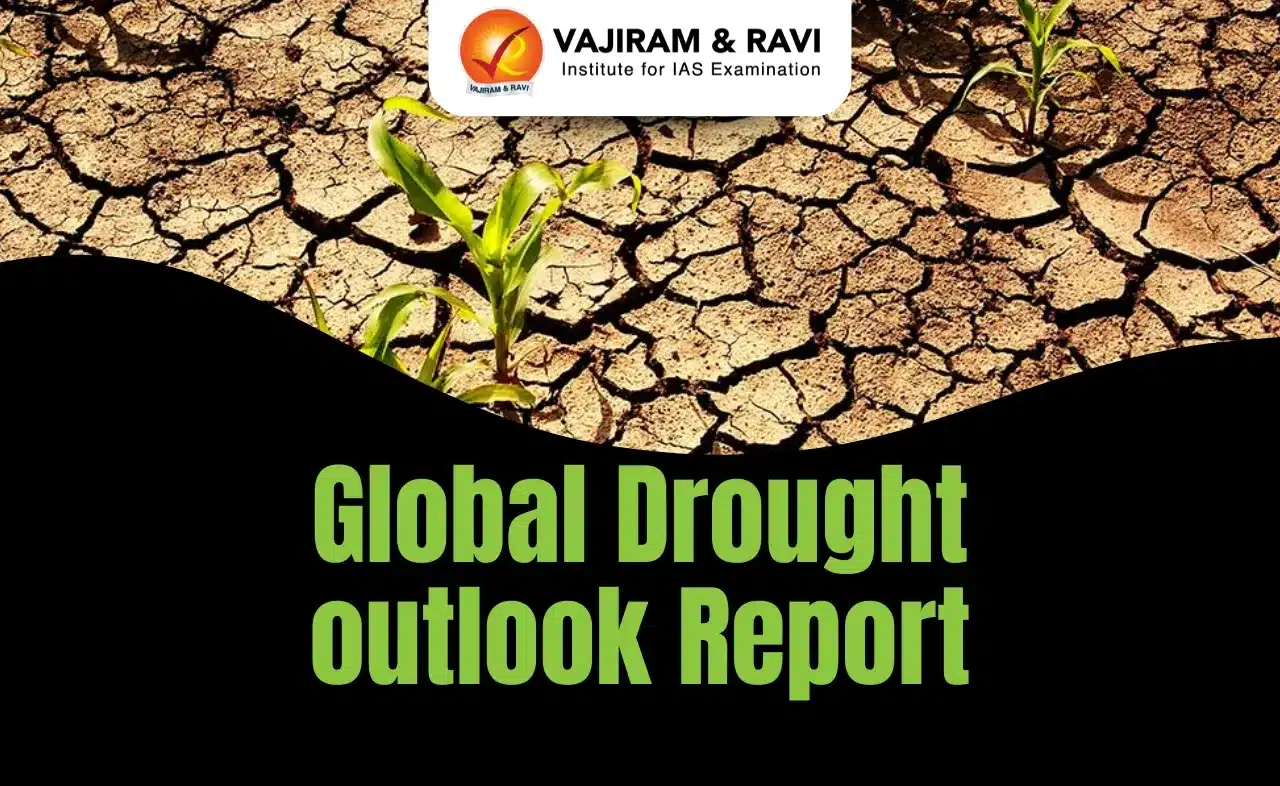Ayurveda Day Latest News
The Government of India has declared that Ayurveda Day will now be observed annually on 23rd September, starting from 2025.
Why 23rd September?
- The date 23rd September coincides with the autumnal equinox, when day and night are nearly equal.
- This event represents balance in nature, aligning with the Ayurvedic principle of equilibrium among body, mind, and spirit.
- The symbolism of cosmic balance supports the holistic philosophy of Ayurveda, making the equinox a powerful metaphor for natural harmony and health.
What is Ayurveda?
- The term ‘Ayurveda’ is derived from ‘Ayu’ (life) and ‘Veda’ (knowledge), meaning the “science of life.”
- Ayurveda deals with all forms of life and is divided into:
- Nara Ayurveda – focused on human life and health,
- Satva Ayurveda – deals with animal health and diseases,
- Vriksha Ayurveda – focused on plant growth, health, and diseases.
- Ayurveda is not just a system of medicine but also a philosophy of living aimed at positive health and spiritual growth.
Structure and Practice of Ayurveda
- Ayurveda has both preventive and curative elements, with therapies adapted to individual, climatic, and environmental needs.
- Preventive aspects include: Strict hygiene protocols, lifestyle discipline, and seasonal regimens.
- Curative aspects involve: Herbal remedies, dietary therapy, external applications, and physiotherapy.
- Ayurveda advocates for personalised treatment, customised to the prakriti (constitution) and imbalances (doshas) of each individual.
- The Indian Medical Council Act of 1971 provides formal recognition to Ayurveda, Unani, and Siddha systems, ensuring standardisation and regulation.
Core Principles and Holistic Approach
- Ayurveda is based on the concept of the tridosha theory: Vata (air & space), Pitta (fire & water), and Kapha (water & earth).
- The seven body tissues (dhatus) are: Rasa, Rakta, Mamsa, Meda, Asthi, Majja, and Shukra.
- Waste products (malas) include: Mala (feces), Mutra (urine), and Sweda (sweat).
- Health is defined as the balanced state of these doshas, dhatus, and malas.
- Disease arises from imbalance, and Ayurveda treats the root causes, not just the symptoms.
Ayurveda Day FAQs
Q1: What is Ayurveda Day?
Ans: Ayurveda Day is celebrated to promote the ancient Indian system of medicine, Ayurveda, and is observed on Dhanvantari Jayanti, during Dhanteras.
Q2: Which ministry organises Ayurveda Day celebrations?
Ans: The Ministry of AYUSH (Ayurveda, Yoga, Unani, Siddha, and Homeopathy) organizes Ayurveda Day in India.
Source: PIB
Last updated on June, 2025
→ UPSC Notification 2025 was released on 22nd January 2025.
→ UPSC Prelims Result 2025 is out now for the CSE held on 25 May 2025.
→ UPSC Prelims Question Paper 2025 and Unofficial Prelims Answer Key 2025 are available now.
→ UPSC Calendar 2026 is released on 15th May, 2025.
→ The UPSC Vacancy 2025 were released 1129, out of which 979 were for UPSC CSE and remaining 150 are for UPSC IFoS.
→ UPSC Mains 2025 will be conducted on 22nd August 2025.
→ UPSC Prelims 2026 will be conducted on 24th May, 2026 & UPSC Mains 2026 will be conducted on 21st August 2026.
→ The UPSC Selection Process is of 3 stages-Prelims, Mains and Interview.
→ UPSC Result 2024 is released with latest UPSC Marksheet 2024. Check Now!
→ UPSC Toppers List 2024 is released now. Shakti Dubey is UPSC AIR 1 2024 Topper.
→ Also check Best IAS Coaching in Delhi
Tags: ayurveda day Prelims Pointers upsc prelims current affairs
























